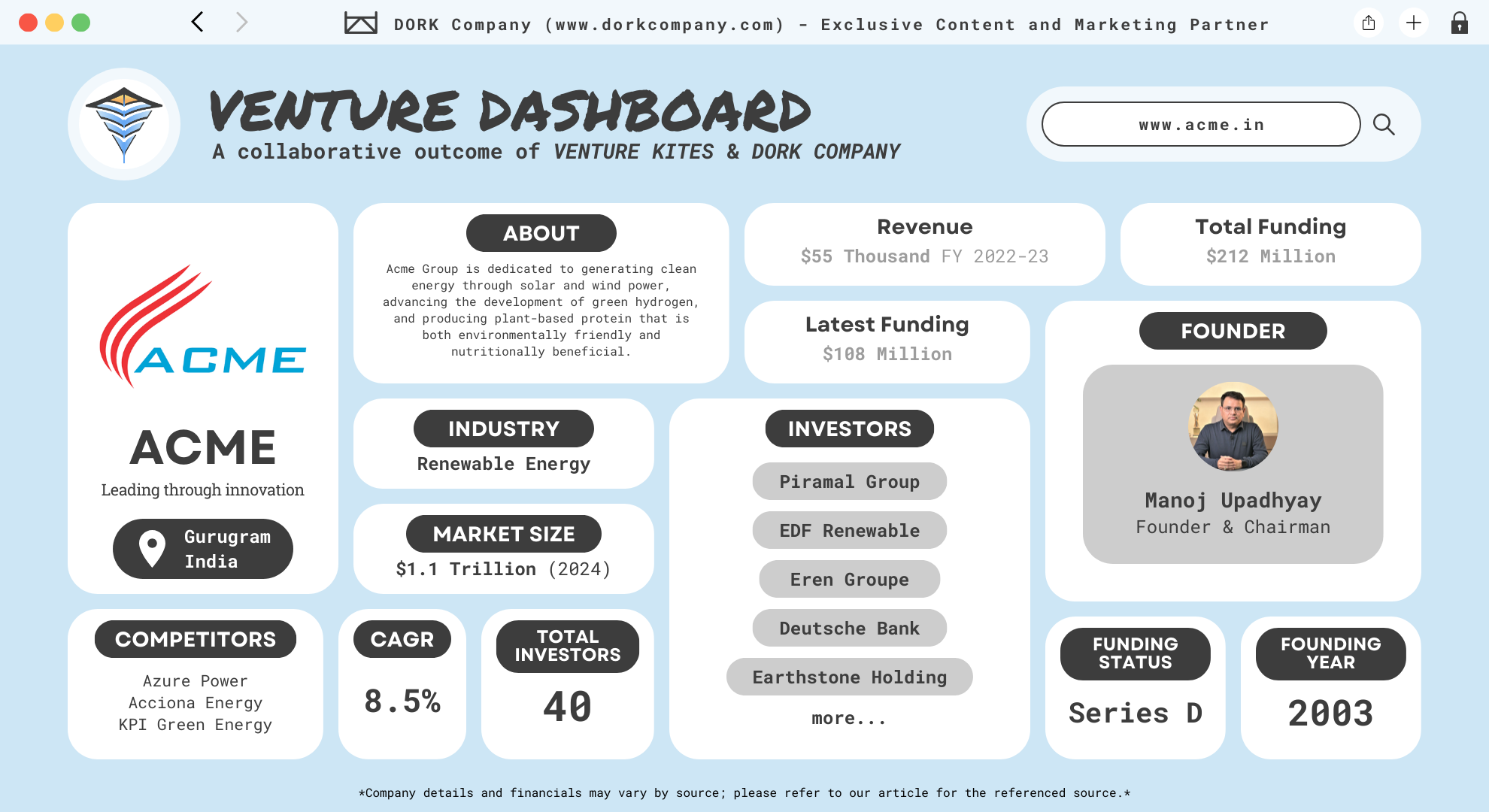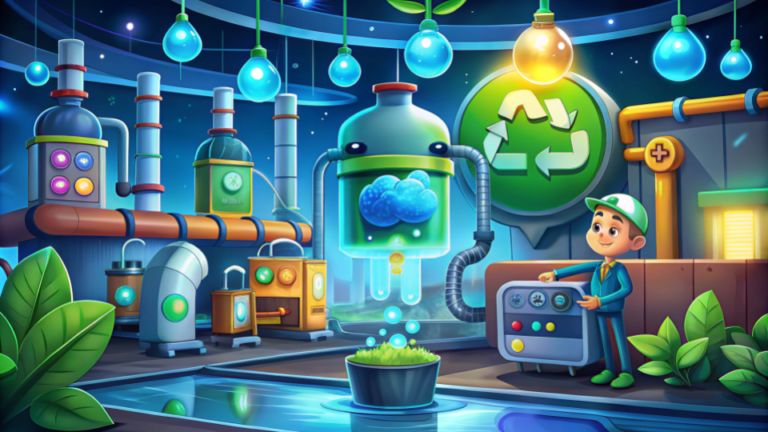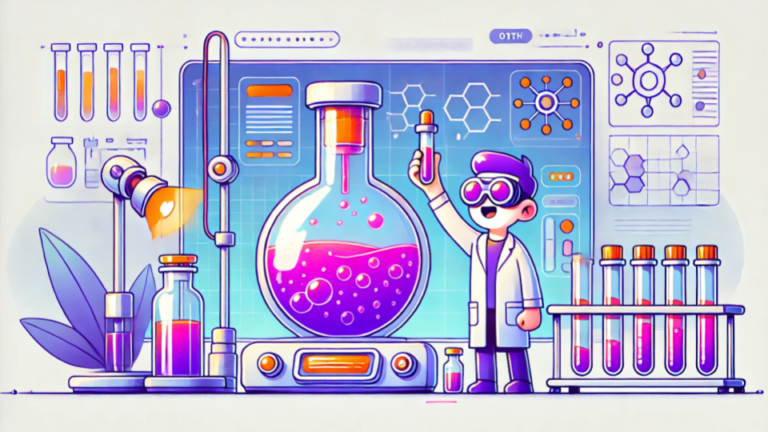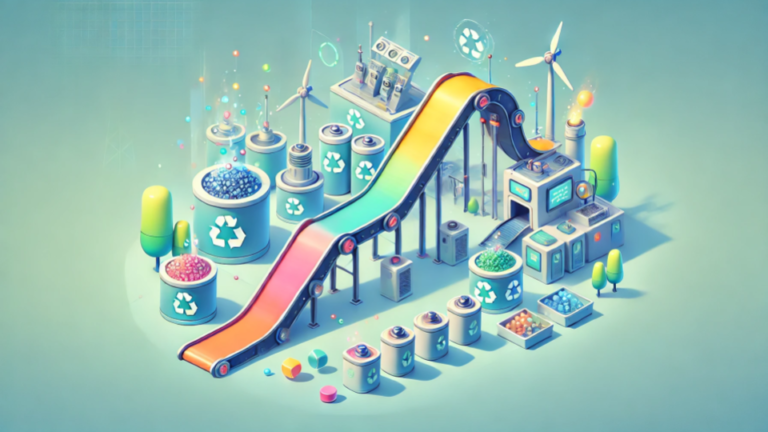Acme Group : Watt’s Next For the Future of Clean Energy?

Acme Group, founded in 2003 by Manoj K. Upadhyay, is a leading player in India’s renewable energy sector. Headquartered in Gurugram, Haryana, the company focuses on sustainable solutions, particularly in solar power and green hydrogen. Manoj K. Upadhyay, an innovator and entrepreneur, established Acme Group to introduce disruptive technology solutions through intensive research and an innovative approach. Initially, these solutions were utilized to optimize energy usage for the telecom industry. (Acme)
Over the years, Acme Group has expanded its operations across 13 Indian states, developing and operating large-scale solar power projects. The company has built a solar portfolio of over 6.65 gigawatt-peak (GWp), with 2.29 GWp currently operational and an additional 4.35 GWp under construction. In addition to solar energy, Acme Group is pioneering the use of green hydrogen and ammonia. The company envisions becoming a leading green energy provider globally by 2030, aiming to produce 10 million tons per year of green ammonia and hydrogen.
Acme’s commitment to sustainability and innovation has positioned it as a significant contributor to India’s renewable energy landscape. By focusing on clean energy solutions, the company addresses the growing demand for sustainable power sources, aligning with global efforts to combat climate change.
Watt a Vision: Meet the Mind Behind Acme Group
Manoj Kumar Upadhyay is the Founder, Chairman, and Managing Director of Acme Group, a company based in Gurgaon, Haryana, India. He established Acme in January 2003 and has been actively leading the company for over 21 years. His vision for Acme is to transform it into a global leader in green energy by 2030, with a particular focus on producing green ammonia and hydrogen at a target of 10 million tons per year. (Manoj Kumar Upadhyay)
Early Experience
He is an innovator and entrepreneur with a passion for technology and sustainability. He earned a Diploma in Electronics Engineering from Government Polytechnic, Shahjahanpur, Uttar Pradesh. Before establishing Acme Group, Upadhyay gained experience in power, telecommunications, energy management, and storage sectors. He worked with German telecom power company Benning, where he quickly rose to become the technical head for India operations.
The Founding Story
In 1997, he co-founded Adhunik Power Systems, focusing on power protection and management services. By 2002, the company achieved a turnover of Rs 300 million. In 2003, Upadhyay founded Acme Group in Gurugram, Haryana, aiming to introduce innovative energy solutions. The company’s initial focus was on optimizing energy usage for the telecom industry. One of their early innovations was the Power Interface Unit (PIU), which improved energy efficiency at telecom sites. (Powerline)
Innovations and Growth
Under Upadhyay’s leadership, Acme Group developed several patented products, including the Green Shelter and Phase Change Material (PCM). These innovations contributed to the company’s growth and reputation in the energy sector. Upadhyay’s vision extended beyond telecom energy solutions. He led Acme Group into the renewable energy sector, focusing on solar power and green hydrogen. His dedication to sustainability and innovation has positioned Acme Group as a leader in India’s renewable energy landscape.
Fueling the Future: The Renewable Boom We Can’t Ignore
The global renewable energy market is experiencing significant growth. In 2023, it was valued at approximately USD 1.1 trillion. Projections indicate it will reach USD 2.5 trillion by 2033, growing at a compound annual growth rate (CAGR) of 8.5% from 2024 to 2033. (Allied Market Research)
India’s Renewable Energy Landscape
India is a key player in the renewable energy sector. In 2023, the market size was USD 22.0 billion. It is expected to grow to USD 46.7 billion by 2032, with a CAGR of 8.71% during 2024-2032. (Imarc Group)
Growth Drivers
Several factors contribute to this growth:
- Technological Advancements: Innovations in solar photovoltaics and wind turbines enhance efficiency.
- Government Policies: Supportive regulations and incentives promote renewable energy adoption.
- Environmental Concerns: Increasing awareness drives demand for clean energy solutions.
Challenges
Despite growth, challenges remain:
- Infrastructure: Upgrading grids to handle renewable energy is essential.
- Investment: Significant capital is required for large-scale projects.
- Policy Implementation: Consistent and clear policies are crucial for sustained growth.
The renewable energy market is poised for continued expansion. With ongoing technological advancements and supportive policies, both global and Indian markets are set to achieve their projected growth. Companies like Acme Group play a vital role in this transition to sustainable energy.
Mission Unstoppable: How Acme is Energizing the World
Mission and Vision
Acme’s mission focuses on creating sustainable, innovative solutions that lead the world towards a greener future. Their vision is to become a global leader in clean energy by 2030, producing 10 million tons per year of green ammonia and hydrogen. They aim to address some of the world’s most challenging sectors, including food, agriculture, steel, shipping, cement, and aluminum, by introducing renewable energy sources that reduce carbon emissions. (About Acme)
Problems They Solve
Acme Group addresses several critical global issues:
- Carbon Emissions: Through renewable energy projects, especially solar and green hydrogen, Acme reduces carbon footprints, contributing to the global climate agenda.
- Energy Efficiency: They offer innovative solutions that enhance energy efficiency, particularly within industrial and agricultural sectors.
- Clean Energy for Hard-to-Decarbonize Sectors: They focus on sectors that traditionally rely on fossil fuels, providing cleaner alternatives that are crucial for reducing overall carbon emissions in industries that are challenging to green.
Business Model
Acme Group operates on a model that combines large-scale project development and technology innovation:
- Solar Power Projects: They develop, construct, and operate solar projects, providing clean energy across 13 Indian states. This segment forms the backbone of their renewable energy efforts.
- Green Hydrogen and Ammonia Production: Acme is setting up projects in India and Oman to produce green hydrogen and ammonia, both as fuel alternatives and as ingredients in industrial processes.
- Global Expansion: Acme partners with various governments and organizations worldwide, targeting regions like Oman, Egypt, Australia, and Chile to expand their green energy projects.
Where the Energy Flows: Acme’s Key Business Segments
The Acme’s key business segments reflect its commitment to green energy and renewable solutions, addressing the demands of various sectors while focusing on sustainability. The primary business segments include:
Solar Power
Acme has established itself as a major player in solar energy, with a large portfolio of solar projects spread across multiple states in India. Their approach spans the complete lifecycle of solar power, including project development, financing, construction, and operational management. These solar solutions cater to the needs of both state and central entities, helping them source renewable energy, achieve sustainability goals, and reduce carbon footprints.
Solar-Wind Hybrid and FDRE Projects
Acme’s Solar-Wind Hybrid projects integrate solar and wind power with battery storage systems, providing a reliable and cost-effective solution for large-scale clean energy needs. These hybrid systems make use of the complementary nature of solar and wind energy, along with storage capabilities, to optimize energy generation. FDRE (Flexible Dispatchable Renewable Energy) projects also play a part in delivering stable energy solutions by utilizing battery energy storage.
Wind Power
The company has ventured into large-scale wind power projects, which involve detailed assessments of wind resources and strategic micro-siting for optimal energy generation. These projects provide clean, dependable energy solutions, broadening Acme’s renewable portfolio and allowing it to serve different energy demands.
Green Hydrogen and Ammonia Production
Acme is investing significantly in green hydrogen and green ammonia, produced using renewable energy. This segment supports industries like steel, cement, refineries, aluminum, and others that rely heavily on hydrogen and ammonia for their processes. Acme is developing green hydrogen facilities in locations such as Oman, Texas, and India, aiming to serve as a critical supplier to industries shifting towards greener operations. The company’s green ammonia is also intended for applications in fertilizers (urea, DAP, ammonium nitrate, and ammonium phosphate production), transportation, and heavy industries.
Pumped Storage Power Projects (PSP)
This segment uses water stored in reservoirs to produce power, complementing other renewable sources and providing flexibility in energy supply. PSPs contribute to grid stability, which is essential for accommodating the variability of renewable energy sources.
Acme Superfoods
It is a division of the Acme Group, focuses on producing sustainable, nutrient-rich food ingredients, with a particular emphasis on mycoprotein. Mycoprotein is a high-quality, fermentation-derived protein sourced from filamentous fungi. It offers a sustainable alternative to traditional protein sources.
Through these segments, Acme Group aims to make a significant impact on India’s journey to achieving Net Zero by 2070, offering solutions that align with both environmental sustainability and the demands of industrial clients. The company’s comprehensive and diversified approach reflects its goal of advancing renewable energy across diverse applications and markets.
Acme’s Boldest Projects : Core Segments and Their Green Machines
Acme Group has undertaken several significant projects and introduced innovative solutions in the renewable energy sector. (Projects)
1. Integrated Green Hydrogen and Ammonia Plant in Rajasthan
In 2021, Acme Group established the world’s first integrated pilot project for green hydrogen and green ammonia in Bikaner, Rajasthan. This facility produces green hydrogen using a 5 MWp solar plant, scalable to 10 MWp. The project aims to reduce approximately 4,400 tons of CO₂ emissions annually.
2. Large-Scale Green Ammonia Project in Oman
Acme Group is developing a large-scale green ammonia facility in the Special Economic Zone at Port of Duqm, Oman. The first phase is expected to produce 100,000 tonnes of green ammonia annually. Plans include expanding production to 1.2 million tonnes per annum, utilizing about 3.5 GW of electrolyser capacity powered by 5.5 GWp of solar PV.
3. Solar Power Projects Across India
Acme Group has built and operated a solar portfolio of over 5 GWp, with projects spread across 13 states in India. Acme also has signed agreements with the governments of Karnataka and Tamil Nadu to invest approximately ₹52,000 crore in each state to establish green hydrogen and ammonia plants These projects contribute significantly to India’s renewable energy capacity and help reduce carbon emissions.
4. Technological Innovations
Acme Group has introduced several patented products, including the Green Shelter and Phase Change Material (PCM). These innovations enhance energy efficiency and sustainability in various applications
Powerful Recognition: Acme’s Brightest Moments
Acme Group has earned recognition for its contributions to renewable energy. Their achievements highlight their commitment to sustainability and innovation.
1. Best Solar Utility Company of the Year
In 2019, Acme Solar received the “Best Solar Utility Company of the Year” award from ET NOW at the Making of Developed India Awards for Excellence in Solar Energy. (Facebook)
2. Excellence in Sustainability Innovation Award
In 2019, Acme Group won the Excellence in Sustainability Innovation Award at the 19th Edition of the World Sustainability Congress & Awards to recognize their innovative approach to sustainable energy solutions. (Acme Superfoods)
3. Indus Towers Partner Award
Acme Group received the Indus Towers Partner Award for four consecutive years to acknowledge their responsiveness and commitment to quality in providing energy solutions for telecom infrastructure. (Facebook)
4. Entrepreneur of the Year Award
In 2007, Manoj K. Upadhyay, founder of Acme Group, received the Entrepreneur of the Year Award (Start-up) from Ernst & Young to honor his vision and leadership in establishing Acme Group. (Acme)
5. Business Excellence Award
In 2015, Upadhyay received the Business Excellence Award at the CESS Symposium for his contributions to the renewable energy sector. (Acme)
6. Recognition in Renewable Energy Sector
In 2022, Upadhyay was listed among the Top & Most Powerful People in the renewable energy sector (Private) by EQ Mag Pro to highlight his influence and impact in the industry. (Acme)
It Takes Power to Tango: Acme’s Dynamic Partnerships
Acme Group has formed several strategic partnerships to advance renewable energy initiatives.
1. Collaboration with Indian Gas Exchange (IGX)
In February 2024, Acme Group signed a Memorandum of Understanding (MoU) with IGX to develop India’s green hydrogen and ammonia market to create a physically traded market for green molecules, starting with regional hubs near production sites and expanding nationwide. (Construction Week Online)
2. Agreement with IHI Corporation
In January 2024, Acme Group and Japan’s IHI Corporation signed an offtake term sheet for supplying green ammonia from Odisha, India, to Japan to support both countries’ commitments to sustainable energy. (Solar Quarter)
3. Partnership with Indraprastha Gas Limited (IGL)
In May 2023, Acme Group and IGL signed an MoU to explore green hydrogen business opportunities. They plan to set up hydrogen generation plants and blend green hydrogen into IGL’s existing pipeline networks, promoting its adoption in various sectors. (Livemint)
4. Collaboration with Yara International
In March 2024, Acme Group entered into a binding agreement with Yara International for the supply of green ammonia. This partnership aims to develop value chains that reduce emissions and promote sustainable energy solutions. (Yara)
5. MoU with Government of Karnataka
In June 2022, Acme Group signed an MoU with the Government of Karnataka to invest ₹52,000 crore in a green hydrogen and ammonia project. This project is expected to generate over 2,000 employment opportunities and contribute to the state’s green energy initiatives. (Acme)
A Clean Sweep: The Financial Power Behind Acme
Acme Group has raised a total of $212 million in equity funding over four rounds. This funding has supported the expansion of their renewable energy projects, especially in solar power and green hydrogen. Key investors include major corporate and institutional investors who recognize Acme’s potential in the clean energy sector. (Tracxn)
Funding Rounds and Key Investors
Angel Round – June 25, 2007
Acme’s journey began with an angel funding round, raising $429,000 with a valuation of $166 million. This funding round attracted a group of individual investors who believed in Acme’s mission. Prominent angels like R Balaram, Sudhir C Sabharwal, and Pradip Kumar Dey were among the early backers.
Private Equity Round – November 14, 2007
Acme’s first major growth came with a private equity (PE) investment of $49.8 million. At this time, the company achieved a valuation of $3.1 billion and reported a revenue of $298 million. Major investors in this round included Earthstone Holding, Deutsche Bank, and Kotak Mahindra Bank. This investment helped Acme scale its projects and boost revenue tenfold to $298 million.
Series D – December 5, 2013
In this Series D round, Acme raised $89.2 million, with backing from EDF Renewable and Eren Groupe. This funding strengthened Acme’s resources for expanding renewable energy projects, though valuation and revenue details for this round are unavailable. This funding provided Acme with the capital to explore new renewable energy technologies and enter larger markets.
Series D – November 25, 2016
Acme raised $72.8 million in a subsequent Series D round. At this stage, Acme achieved annual revenue of $235 million. Piramal Group, a major corporate entity, invested in this round. This funding helped solidify Acme’s operations in India and paved the way for further innovations in green energy.
Conventional Debt Round – July 5, 2017
In 2017, Acme secured $108 million through conventional debt, with Piramal Group as the principal investor. This funding supported operational expenses and expansion, helping Acme achieve a revenue of $283 million. This round highlighted Acme’s strong relationship with established investors, showing confidence in its long-term potential.
Revenue Growth
In the fiscal year 2019, Acme Group reported revenues of ₹2,854.90 crore. However, in FY2020, revenues declined to ₹588.25 crore. This decrease was primarily due to the sale of a 600 MW project, which altered the company’s business profile. (Acuite)
A Brighter Future Awaits: Let’s Get Energized with Acme
Acme Group stands out as a leader in renewable energy, advancing clean and sustainable power solutions. Founded in 2003, the company has grown through its innovative work in solar power, green hydrogen, and green ammonia. Their projects, like the world’s first integrated green hydrogen and ammonia plant in Rajasthan, highlight Acme’s commitment to fighting climate change. Their large-scale projects in India, Oman, and partnerships worldwide underscore their ambition to lead in sustainable energy.
By focusing on sectors traditionally hard to decarbonize, such as agriculture and heavy industry, Acme helps industries reduce their carbon footprint. The company’s energy storage solutions ensure consistent energy flow, solving one of the biggest challenges in renewable energy. With a mission to produce 10 million tons of green ammonia and hydrogen by 2030, Acme aims to revolutionize clean energy production.
Acme’s journey can inspire you to think about your role in sustainability. Whether you’re an entrepreneur, investor, or student, there are endless possibilities in renewable energy. Interested in more stories of companies driving change? Check out other articles on Venture Kites. We cover the latest in technology, entrepreneurship, and more.
At a Glance with DORK Company

Dive In with Venture Kites
Lessons From Acme Group
Value Social Responsibility
The Lesson & Why it Matters: Companies that act responsibly attract goodwill, strengthening their brand and community connections.
Implementation: Incorporate social responsibility into your business practices.
How Acme Implements It: Acme’s green hydrogen initiatives align with reducing carbon emissions and supporting global environmental goals.
Stay Flexible in Business Strategy
The Lesson & Why it Matters: Flexibility allows companies to pivot when necessary and seize new opportunities.
Implementation: Maintain a flexible business model that can adapt to changes.
How Acme Implements It: Acme transitioned from telecom energy solutions to renewable energy, demonstrating flexibility in their business approach.
Use Technology to Drive Efficiency
The Lesson & Why it Matters: Advanced technology improves efficiency, reduces costs, and enhances product quality.
Implementation: Adopt and develop technology that optimizes operations and improves product offerings.
How Acme Implements It: Acme employs advanced solar PV and electrolysis technology to produce green hydrogen efficiently, minimizing costs and environmental impact.
Challenge Industry Norms Through R&D
The Lesson & Why it Matters: Investing in R&D can set you apart in competitive markets. Innovation often involves challenging conventional solutions.
Implementation: Dedicate resources to research and build a culture that encourages questioning established norms.
How Acme Implements It: Acme has invested heavily in R&D to develop unique solutions, such as their integrated green hydrogen and ammonia plant, which disrupts traditional energy supply chains.
Pursue High-Impact Partnerships Early On
The Lesson & Why it Matters: Forming partnerships with established entities opens doors to expertise, resources, and credibility, which are crucial for scaling.
Implementation: Identify key players in your field and seek collaboration opportunities that benefit both sides.
How Acme Implements It: Early on, Acme partnered with local governments and international firms like IHI Corporation, strengthening their position in green energy production.
Youtube Shorts
Author Details
Creative Head – Mrs. Shemi K Kandoth
Content By Dork Company
Art By Dork Company
Instagram Feed
X (Twitter) Feed
🚀 BTQ @BTQ_Tech is pioneering post-quantum cryptography to secure our digital future! 🌐🔒
— Venture Kites (@VentureKites) December 2, 2024
Let’s explore how they’re tackling quantum computing threats and building quantum-safe solutions for blockchain, cryptography, and beyond. 👇👇#QuantumComputing #Cybersecurity #BTQ












